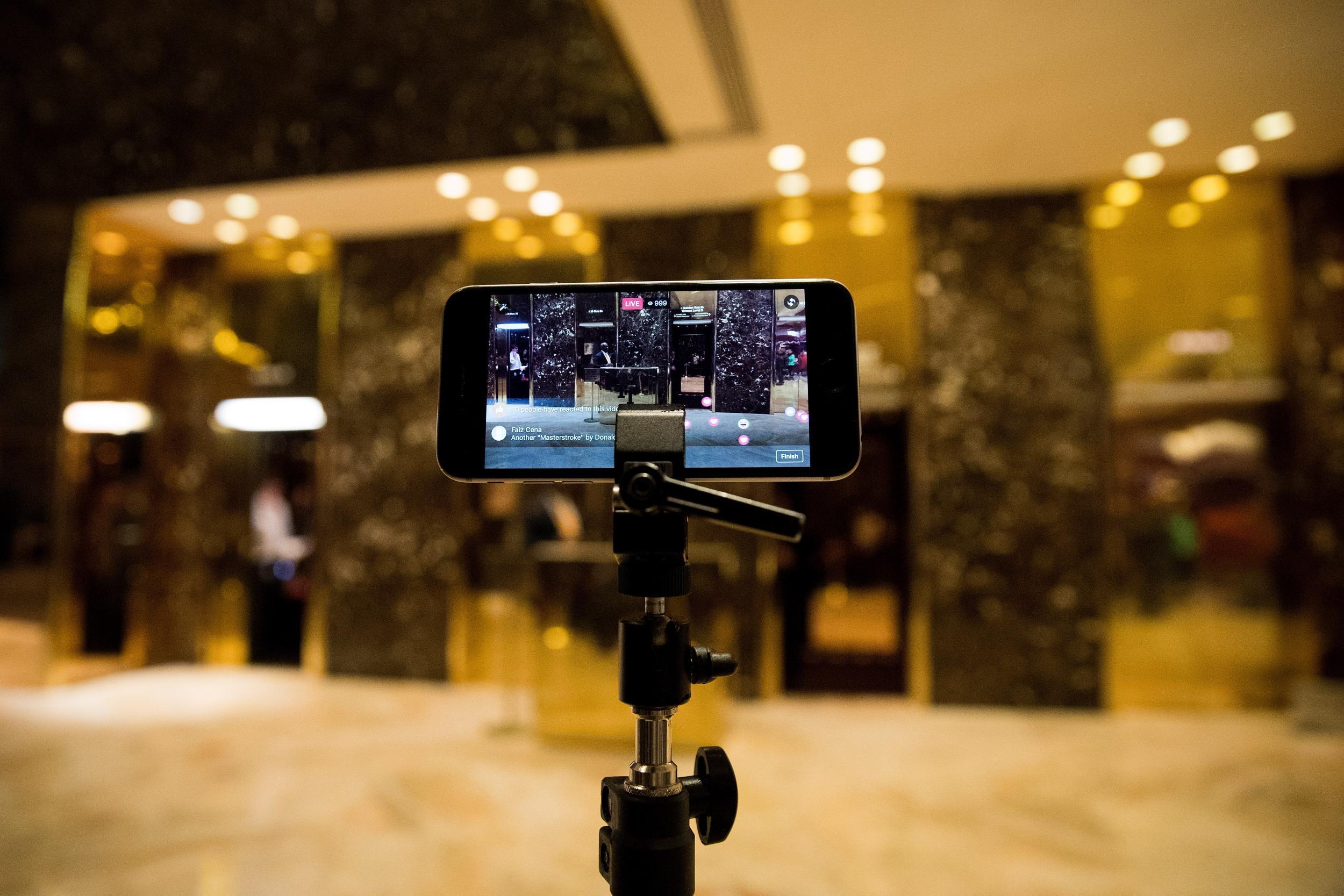In an age of facial recognition technology and lip-reading CCTV cameras, we need to consider digital as well as sexual consent
Businesses must understand that to record us, to analyse our behaviour and to make decisions about our lives without permission, is an act of abuse

Your support helps us to tell the story
From reproductive rights to climate change to Big Tech, The Independent is on the ground when the story is developing. Whether it's investigating the financials of Elon Musk's pro-Trump PAC or producing our latest documentary, 'The A Word', which shines a light on the American women fighting for reproductive rights, we know how important it is to parse out the facts from the messaging.
At such a critical moment in US history, we need reporters on the ground. Your donation allows us to keep sending journalists to speak to both sides of the story.
The Independent is trusted by Americans across the entire political spectrum. And unlike many other quality news outlets, we choose not to lock Americans out of our reporting and analysis with paywalls. We believe quality journalism should be available to everyone, paid for by those who can afford it.
Your support makes all the difference.The #MeToo movement has triggered the inevitable backlash of men claiming they can no longer tell what is considered harassment. If some people come forward about their boss exposing himself, and others about rape, these confused commenters (like Ian Hislop) now cry, “Oh, but touching her knee isn’t the same.”
We’re not fools; we know the difference. What all these incidents have in common is the lack of consent, and men in power acting like that doesn’t matter. The consent movement isn’t new. But every step forward faces two steps backwards from internet businesses.
While there’s been real social progress towards teaching consent in sex education in recent years, the lessons have remained outside the online world. Many people learn to respect each other’s physical boundaries from a young age thanks to these programmes and successful campaigning, to the point that all this steady change has helped make 2017 the year women are finally starting to be believed.
The question is, how long will it take for these lessons to be applied online?
The key concept is that if you make decisions about someone’s body without getting their consent, or by coercing them into it – that’s abuse.
Asking for consent isn’t just about sex. It’s about touching, hugs, nicknames, about personal space, about ownership over your body, and all decisions made regarding it. It’s still abuse if those choices about our bodies look like they are just about data-gathering.
Take, for example, the Scottish CCTV company that earlier this year wanted to instal cameras that lip-read in our shopping centres. Not for crime-prevention, but to get reviews on the products for sale, because “voluntary customer service forms can be dishonest”.
This tech business believed they should be able to record your opinions, without your consent. It is an example of a disturbing CEO on a power trip, and it’s indicative of a global trend. Consider the smart TV that you already paid for, then selling your personal data to advertisers.
This isn’t “your data is the payment” – it’s an attitude of entitlement to all of our lives.
We cannot pretend that digital consent doesn’t matter, as though we have no bodies in “cyberspace”. We are not hiding behind a screen and then switching it off and leaving it all behind. Everything is connected.
We are walking past cameras, we are carrying tracking devices; we are using smart meters and smart TVs, or maybe even buying a home-spyware system like Alexa or Google Home (always on, always listening).
As a result, these issues of consent online are translating into the real world. For example, on Facebook trans people are denied the right to put names that are not on their birth certificates as their actual name. Women are denied breast cancer advice because online platforms think that boobs are too offensive.
We face new threats from facial recognition programmers who want to build ways to check if you are gay (in an incredibly flawed piece of research) from photographs of your face.
If our bodies matter online, then so does asking for consent. I mean proper controls over what happens to you – where you get to take back permissions, rather than face sneaky changes to terms and conditions. It isn’t real consent if it literally takes 8 hours to read what you are agreeing to.
This is why I am excited that the new General Data Protection Regulation, a European regulation we get pre-Brexit, is finally here. The essence of the law is to put the freedoms and rights of individual people first when it comes to our personal data. It comes into force in May and reinforces the value of consent, and of not being subject to automated decision making.
The Information Commissioner’s Office, which regulates this area, describes consent as sex educators do: “Consent must be freely given, specific, informed and unambiguous ... consent cannot be inferred from silence, pre-ticked boxes or inactivity.” Okay, there’s not exactly tick boxes in sex, but the rest is the same.
And that’s because, just like teaching abusers that our bodies are not theirs for the taking, we need to teach businesses the same. They must understand that to record us, to analyse our behaviour and to make decisions about our lives without permission, is an act of abuse.
Data protection legislation like this brings these two fights to a level point. I am hopeful that this will have impact, in really putting individuals back in control. Laws that put consent and control in our hands are possible, but we have to hold tight onto them, and fight for their use. The consent battles online and offline need to be won together.
Join our commenting forum
Join thought-provoking conversations, follow other Independent readers and see their replies
Comments